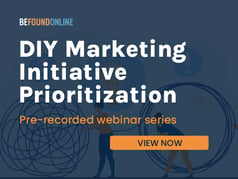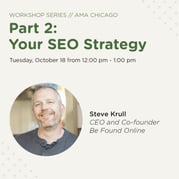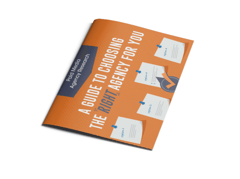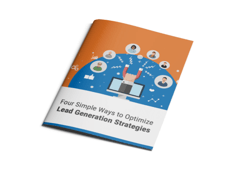Panic Stations? How worried should you be about Google’s Page Experience update?
April 26, 2021
4 Minute Read

by Steve Krull and Mike Davies
So here we go again.
You’ve probably heard that Google is getting ready to update its algorithm (yes, again) later this year.
What’s strange this time, is that Google has actually made a big deal about it.
Usually, the algorithm updates happen overnight and then the SEO community goes into overdrive trying to figure out what’s changed, and how they can manage it.
The latest algorithm update will include factors called “Page Experience” and “Core Web Vitals”.
When they launch in May they’ll have a big impact on rankings, fundamentally shifting the way websites are positioned in search based on the experience a user gets on a website.
So, what do you need to know about these updates and how can you best manage them to retain your web performance.
What is page experience and core web vitals?
The first thing to understand, is that page experience and web vitals are all part of the same puzzle.
The page experience relates to the overall user performance of your website, the core vitals are the parts of the experience Google will judge your website on.
To provide the best experience, you should check your web vitals to make sure you’re meeting the highest levels.
For a better explanation, let’s see how Google themselves describe these updates:
“The page experience signal measures aspects of how users perceive the experience of interacting with a web page. Optimizing for these factors makes the web more delightful for users across all web browsers and surfaces, and helps sites evolve towards user expectations on mobile.
“We believe this will contribute to business success on the web as users grow more engaged and can transact with less friction.”
So what should we be looking at?
Page experience will use some existing search signals.
The main existing signal is mobile-friendliness.
We know already that Google is making a big push towards websites that optimize as “mobile first” so this is no big surprise. If you haven’t already got your website mobile ready, now is the time to do it.
Alongside this, you’ll be assessed on the safety of your user browsing experience (whether you’re using HTTPS, for example) and “intrusive interstitials” guidelines (pop-ups and ads etc).
Added to this list, will be some new metrics:
Load speed
This is the speed at which the main content on the page has loaded.
Interactivity
This is the point at which a user can actually start to scroll or tap buttons on the page (we’ve all experienced that delay when a page looks like it’s loaded but we can’t move it – that will now be punished in rankings).
Screen stability
This is about preventing parts of the page moving or jumping around once the page has loaded. Like when you scroll down and the top of the page travels down with you, and then jumps back up).
So, how worried should you be?
You should definitely take this algorithm seriously.
One of the reasons Google has gone out of its way to make a noise about it, is because it has the potential to seriously punish websites that don’t put user experience high on the agenda.
Having said that, it doesn’t sound like this is going to be an overnight transformation.
Dan Sullivan of Google recently posted on Twitter that “It shouldn’t be the case that overnight, we flip some type of switch and there’s a massive change”.
So you do have some time to make the changes you need to improve your page experience score.
This should include things like making sure your website is secure, that pages load quickly and that you’re prioritising mobile.
Is it all bad news?
No.
While the page experience and core web vitals will become a big part of search factors, they are just a part of the bigger picture.
If you have a website that has superior content, there’s still a chance you could outrank a website that provides a better experience.
So websites that have been focusing on high quality content have a better chance of maintaining their rankings after the algorithm change.
If Google decides that two websites have content of equal value to the user, that’s when the page experience will become a deciding factor.
Start thinking like a customer
In his book “Don’t Make Me Think” Steve Krug sets out his view about the importance of usability of a website, stating that they should be built with the user in mind.
This is essentially what you need to think about when it comes to dealing with the page experience algorithm.
Take a look at your website, and consider the following:
- Does it come out well in a general SEO audit?
- How does it score in Core Web Vitals?
- Does it answer your customers’ needs in terms of helpful, educational content?
Long term you should be aiming to perform well in all three. In the short term, if you have a site with strong technical SEO and educational content, you should perform well enough during the initial rollout of the page experience changes, and give yourself enough time to make improvements.
Want to learn more about Google page experience and core web vital update?
Check out our March 25th webinar on demand where we discuss the upcoming algorithm updates, provide more information about how best to prepare for them, and answer any questions you might have directly.

Steve Krull
As CEO/Co-Founder of BFO, Steve excels in ‘unleadership.’ (his word) Steve believes in collaboration and leading by example; remaining vulnerable and open to new ideas, accepting feedback…and doing good things.
CATEGORIES
SUBSCRIBE TO OUR BLOG
Stay up to date with the latest industry best practices in digital marketing!























.png?width=339&height=179&name=Webinar%20Banner%20(1).png)



.png?width=339&height=179&name=July%20Webinar%20(Newsletter).png)

.png?width=339&height=179&name=Webinar%20Banner-April-02%20(1).png)
%20(4).png?width=339&height=179&name=Webinar%20Banner-May-02%20(1)%20(4).png)




.png?width=339&height=179&name=March%202023%20Webinar%20Ad%20(autoresponder).png)

















































